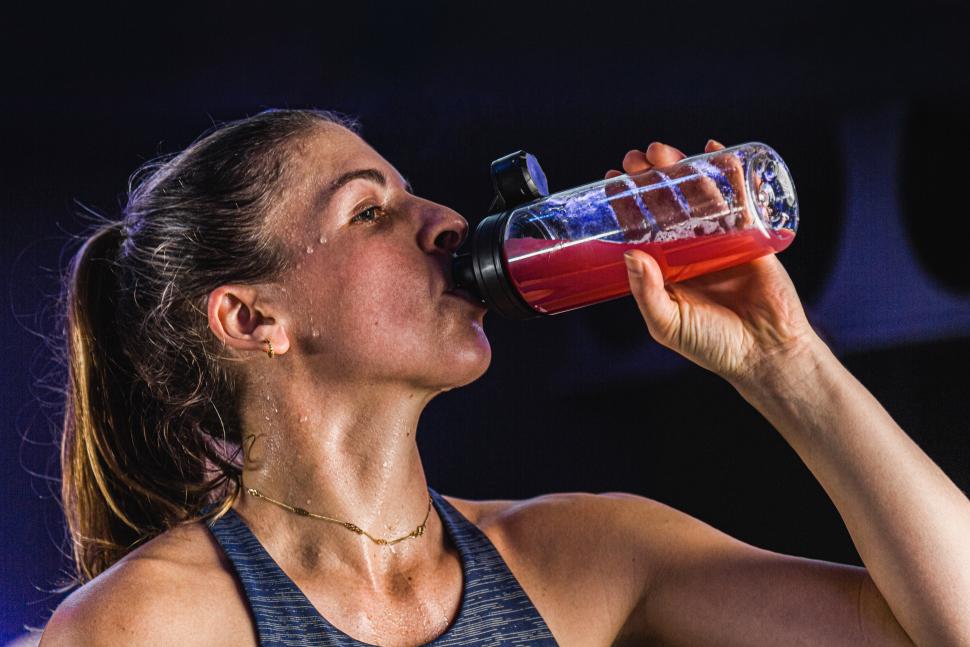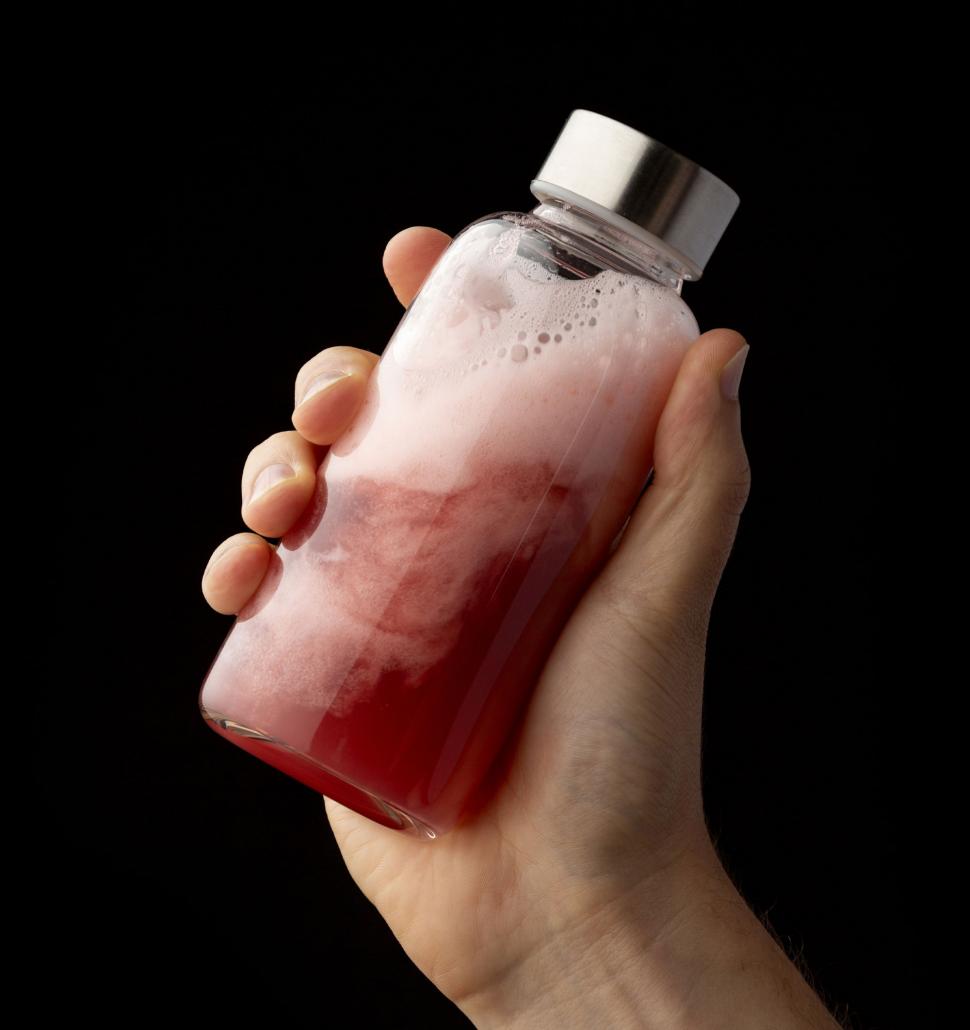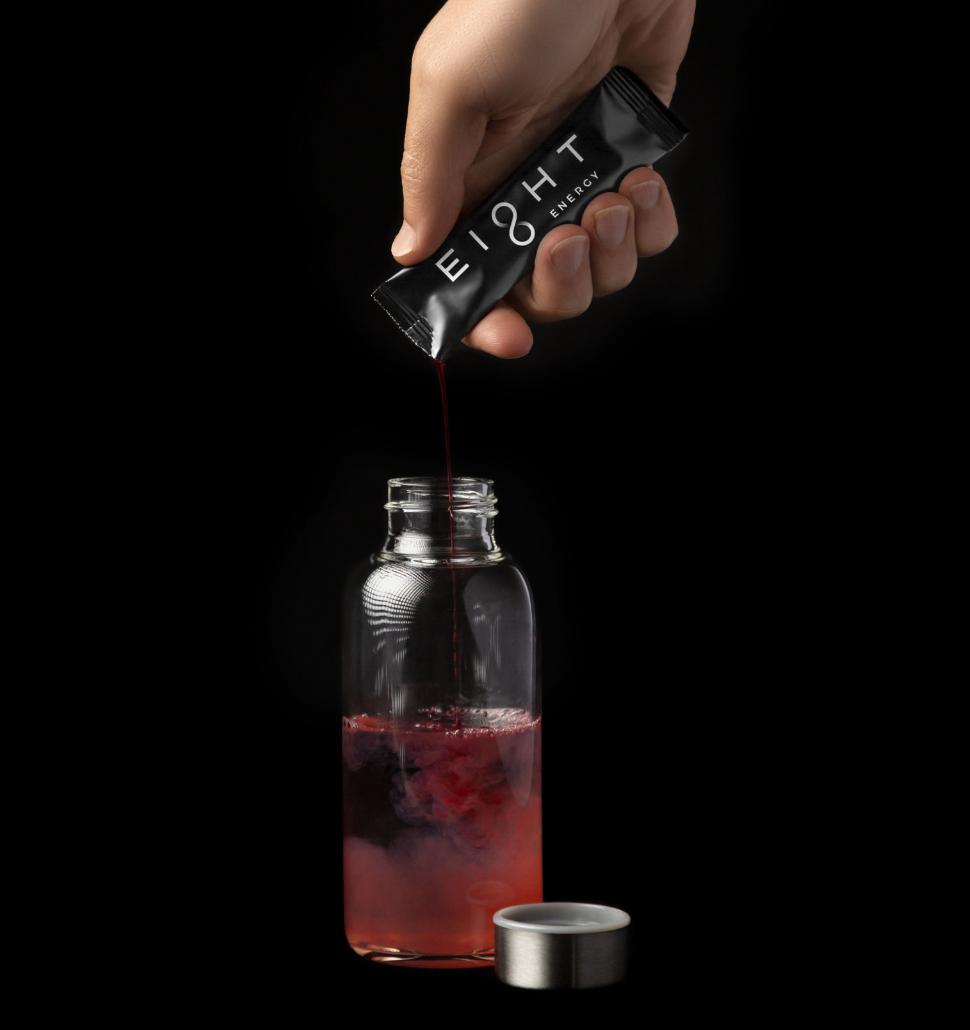- News
- Reviews
- Bikes
- Accessories
- Accessories - misc
- Computer mounts
- Bags
- Bar ends
- Bike bags & cases
- Bottle cages
- Bottles
- Cameras
- Car racks
- Child seats
- Computers
- Glasses
- GPS units
- Helmets
- Lights - front
- Lights - rear
- Lights - sets
- Locks
- Mirrors
- Mudguards
- Racks
- Pumps & CO2 inflators
- Puncture kits
- Reflectives
- Smart watches
- Stands and racks
- Trailers
- Clothing
- Components
- Bar tape & grips
- Bottom brackets
- Brake & gear cables
- Brake & STI levers
- Brake pads & spares
- Brakes
- Cassettes & freewheels
- Chains
- Chainsets & chainrings
- Derailleurs - front
- Derailleurs - rear
- Forks
- Gear levers & shifters
- Groupsets
- Handlebars & extensions
- Headsets
- Hubs
- Inner tubes
- Pedals
- Quick releases & skewers
- Saddles
- Seatposts
- Stems
- Wheels
- Tyres
- Health, fitness and nutrition
- Tools and workshop
- Miscellaneous
- Cross country mountain bikes
- Tubeless valves
- Buyers Guides
- Features
- Forum
- Recommends
- Podcast
TECH NEWS
 Avrox Ei8ht Drink
Avrox Ei8ht Drink Avrox claims new Ei8ht Energy drink boosts peak power by 6.6% and saves 37 seconds over a 16 km time trial
Avrox, a UK-based company working with Oxford University, has launched Ei8ht Energy and Ei8ht Recovery, two powered drinks that claim to enhance performance and recovery by temporarily increasing the blood stream’s ability to transport oxygen.
Avrox claims that an independent study carried out at Surrey University’s Human Performance Institute found that its Ei8ht Energy powder “gave a huge 37 second time improvement for athletes over a 16km time trial.” We’re not sure how many riders were tested in the study, or what the controls were, but that is a significant saving.
Avrox also claims that the Ei8ht Energy power boosts peak power output by 6.6%. We’ve asked to see the study as increases of that size will certainly appeal to racers.
The system apparently utilises natural, vegan ingredients to create molecules which are capable of capturing oxygen, retaining it and then delivering it to the body. Avrox says that you simply mix a sachet with water and then shake for 30 seconds. “This shaking motion stimulates the production and activation of microbubbles capable of carrying oxygen when entering the bloodstream.”
So just like Orangina back in the day, you’ll need to shake it to wake it with the motion creating those all-important microbubbles. Avrox says that you’ve then got 15 minutes to consume the drink so this is definitely a pre-ride solution rather than a drink to take with you on the bike.
Avrox says that the energy drink provides 80mg of caffeine per serving and also includes “high levels of vitamin B3 and B12”, with Avrox says are known for their energy and immune function properties respectively, both delivered to the body in the same way as the oxygen.
The recovery drink works in much the same way as the energy drink above but instead of caffeine, B3 and B12 vitamins, the recovery drink includes a mix of iron and B12 vitamin.
Weirdly, the recover drink is “specifically tackled the effects of reduced oxygen levels in an aircraft cabin” so we’re not sure how this will help with post-ride recovery, but we have samples on their way for testing to find out.
The Ei8ht Energy and Recover can be purchased in packs of 2 (£4.99), 14 (£25.99) or 28 sachets (£37.99) as a one-time purchase or on a monthly subscription basis.
Latest Comments
- Rendel Harris 5 min 28 sec ago
Perhaps you should read the comments, including your own, a bit better then as nobody was discussing whether the product will make a profit or not...
- IanMK 11 min 27 sec ago
That being the case the council can redesign the roads to slow cars down. Unfortunately, I think, that many highways departments still think in...
- Jakrayan 38 min 53 sec ago
It's behind a paywall, however this link should allow you to view it. Though that might be giving him oxygen. ...
- the infamous grouse 38 min 49 sec ago
a deliberate application of Cunningham's Law follows;...
- ChrisA 45 min 53 sec ago
Really, really poor journalism, I thought. Complete lack of clarity.
- slc 1 hour 8 min ago
I'll miss Woodes if it does indeed vanish, but the idea that motorists kept it going is bizarre. It is surrounded by some major workplaces in easy...
- Steve K 1 hour 16 min ago
Some news coverage did mention bikes.
- mdavidford 2 hours 19 min ago
I don't think there's anything natural about it....
- Blackthorne 2 hours 20 min ago
Not that I have any knife in this fight, but this sounds like lawyers finding new ways to enrich themselves under the guise of pretending to give...
- Blackthorne 2 hours 27 min ago
Here's an idea for you: two things can be true at once. Shock. The family is a bunch of censorious whiners, and, Rapha was flatly wrong.


Add new comment
18 comments
Can somebody explain this to me?
1. The drink forms microbubbles
2. You consume the drink, it goes to your stomach
3. ???
4. Thanks to the drink, your blood's ability to transport oxygen from lungs to muscles is improved. Your blood uses red blood cells, not microbubbles, to transport oxygen; and air bubbles in blood are usually a very bad thing; but somehow this drink gets enough microbubbles into the bloodstream that it improves the throughput of a cardiovascular system which was already delivering several litres of oxygen to muscles per minute.
I was a participant in this study and worked in the lab in which the testing was done, so hopefully I can shed some light on the situation. Unfortunately the paper produced is still being reviewed before publication.
The study design was double blind, cross over (so each participant acted as their own control). All the participants (N>10, can't remember the exact number) were experienced cyclists, and a familiarisation with the protocol was done before the two testing days.
The two protocols were: a repeated wingate (3 repeats of a 30 second maximal sprint), with blood lactate taken immediately after each effort); and a 16km time trial simulation, with no information available to the participant other than distance covered.
The drink was taken before the time trial, and in between wingate efforts.
The 37 second improvement referred to is the mean improvement in TT time when using the drink. All the participants performed better when using the drink, with the exception of one (me), who set the same time in both TTs.
The exact mechanism isn't clear, but it's suggested that the O2 is utilized in the liver with lactate processing, after being transported via the portal venous system (bypassing the lungs).
I don't have any affiliation to the company, and I don't particularly like the drink (it makes me throw up in small amounts), but the science and performance enhancing effect was sound.
It's a pity you put what appears to be the same reply 4 or 5 times.
I can't see any mention of whether the power improvement or time saved is when compared with another energy product or water.
I'd expect the 80mg of caffeine could have effected the time trial while the 'microbubbles' science is a new one to me and reminiscent of bullshit shampoo adverts.
Just giving a few people notifications in case they were still interested. During testing there was no caffeine in the drink, and the placebo was matched for flavour and consistency. I understand they've added the caffeine in the commercial product.
The design of the study means that all other aspects were the same between the drink and placebo trials, so a significant difference in performance can be reasoned to be due to the drink.
Like I said, the mechanism is still very unclear, and to be honest we all thought the same when we started testing, that it sounds like complete bollocks. It'll be interesting to see what subsequent research brings up.
I was going to do steroids and epo but seems just the trick to be beat my mates on Strava. Who needs drugs when you can take fizzy beetroot juice and caffeine.
Personally it's nonsense. I am a sports physiology expert and when it comes to sports performance it's easy to play with numbers based on various factors.
Caffeine and carbohydrates alone can boost performance levels. Did they do a double blinded study? If they had taken the same identical group of cyclists and tried various mixes against their mix I think personally the numbers wouldn't even be mentioned.
Sugar coated marketing I am sure pharma companies are saying wow that's stronger than EPO. 🤣
I was a participant in this study and worked in the lab in which the testing was done, so hopefully I can shed some light on the situation. Unfortunately the paper produced is still being reviewed before publication.
The study design was double blind, cross over (so each participant acted as their own control). All the participants (N>10, can't remember the exact number) were experienced cyclists, and a familiarisation with the protocol was done before the two testing days.
The two protocols were: a repeated wingate (3 repeats of a 30 second maximal sprint), with blood lactate taken immediately after each effort); and a 16km time trial simulation, with no information available to the participant other than distance covered.
The drink was taken before the time trial, and in between wingate efforts.
The 37 second improvement referred to is the mean improvement in TT time when using the drink. All the participants performed better when using the drink, with the exception of one (me), who set the same time in both TTs.
The exact mechanism isn't clear, but it's suggested that the O2 is utilized in the liver with lactate processing, after being transported via the portal venous system (bypassing the lungs).
I don't have any affiliation to the company, and I don't particularly like the drink (it makes me throw up in small amounts), but the science and performance enhancing effect was sound.
More ridiculous pseudoscience used to justify an outlandish marketing ploy. Most of the claims that sports drink companies make are based on extremely small sample sizes (some as small as three people) with no controls and no peer review. The actual science says that you do not need any of it, should just drink water, and your body will do the rest. Read the "Waterlogged" by Dr Tim Noakes and "Good to Go" by Christie Aschwanden if you are interested in the science.
I was a participant in this study and worked in the lab in which the testing was done, so hopefully I can shed some light on the situation. Unfortunately the paper produced is still being reviewed before publication.
The study design was double blind, cross over (so each participant acted as their own control). All the participants (N>10, can't remember the exact number) were experienced cyclists, and a familiarisation with the protocol was done before the two testing days.
The two protocols were: a repeated wingate (3 repeats of a 30 second maximal sprint), with blood lactate taken immediately after each effort); and a 16km time trial simulation, with no information available to the participant other than distance covered.
The drink was taken before the time trial, and in between wingate efforts.
The 37 second improvement referred to is the mean improvement in TT time when using the drink. All the participants performed better when using the drink, with the exception of one (me), who set the same time in both TTs.
The exact mechanism isn't clear, but it's suggested that the O2 is utilized in the liver with lactate processing, after being transported via the portal venous system (bypassing the lungs).
I don't have any affiliation to the company, and I don't particularly like the drink (it makes me throw up in small amounts), but the science and performance enhancing effect was sound.
Can I be the first to say:
What absolute, complete and utter bollocks. 37 seconds? FFS, if I took a fucking blood bag before my local club ten I wouldn't take 37 seconds off my PB.
37 seconds difference for someone who hadn't eaten or drunk anything for two days before, doesn't train and has ridden precisely one 10 mile TT in their life before... maybe
Honestly, who writes this shit?
I was a participant in this study and worked in the lab in which the testing was done, so hopefully I can shed some light on the situation. Unfortunately the paper produced is still being reviewed before publication.
The study design was double blind, cross over (so each participant acted as their own control). All the participants (N>10, can't remember the exact number) were experienced cyclists, and a familiarisation with the protocol was done before the two testing days.
The two protocols were: a repeated wingate (3 repeats of a 30 second maximal sprint), with blood lactate taken immediately after each effort); and a 16km time trial simulation, with no information available to the participant other than distance covered.
The drink was taken before the time trial, and in between wingate efforts.
The 37 second improvement referred to is the mean improvement in TT time when using the drink. All the participants performed better when using the drink, with the exception of one (me), who set the same time in both TTs.
The exact mechanism isn't clear, but it's suggested that the O2 is utilized in the liver with lactate processing, after being transported via the portal venous system (bypassing the lungs).
I don't have any affiliation to the company, and I don't particularly like the drink (it makes me throw up in small amounts), but the science and performance enhancing effect was sound.
Can't wait to try this on my commute into work tomorrow morning.
Yeah the extra time they can pay you for being early might offset some of the cost of the drink
I expect it's the caffeine that's boosting performance, the rest of it sounds like marketing.
Or maybe we'll start seeing professional athletes getting busy with a Soda Stream pre-race.
It's possible, but it would have to be full of Ketone Esters. I'm sure they've found their way into professional cyclists armouries before now.
I too was so prepared to call bull on this... did a quick google...
this paper is from a while ago but seems to feature the Avrox "oxygen nanobubble"
https://www.ncbi.nlm.nih.gov/pmc/articles/PMC5201233/
It does seem to have some legitimacy in terms of potential inceased oxygen delivery, although it also looks like this is a technology in search of an application (we tried treating cancer with it, let's give cycling a go...).
I'd also be interested to see how quickly the available oxygen in the drink would be consumed as I'd be surprised if the oxygen delivered from the "air gap" in the bottle pictured is anything like a fraction of that repeatedly inhaled by a TT cyclist, unless the bubbles persist in your bloodsteam and get renewed in the lungs - which sounds worrying in itself!
Exactly, even if this works, I don't understand how that small amount of oxygen is supposed to make that big a difference. Lungs, especially those of anyone who's done a reasonable amount of exercise training, are pretty efficient at getting as much oxgen into the bloodstream as they can. Or are they suggesting these molecules that go through your digestive system remain intact and act as additional red blood cells? In which case I definitely don't want those in my body.
I was a participant in this study and worked in the lab in which the testing was done, so hopefully I can shed some light on the situation. Unfortunately the paper produced is still being reviewed before publication.
The study design was double blind, cross over (so each participant acted as their own control). All the participants (N>10, can't remember the exact number) were experienced cyclists, and a familiarisation with the protocol was done before the two testing days.
The two protocols were: a repeated wingate (3 repeats of a 30 second maximal sprint), with blood lactate taken immediately after each effort); and a 16km time trial simulation, with no information available to the participant other than distance covered.
The drink was taken before the time trial, and in between wingate efforts.
The 37 second improvement referred to is the mean improvement in TT time when using the drink. All the participants performed better when using the drink, with the exception of one (me), who set the same time in both TTs.
The exact mechanism isn't clear, but it's suggested that the O2 is utilized in the liver with lactate processing, after being transported via the portal venous system (bypassing the lungs).
I don't have any affiliation to the company, and I don't particularly like the drink (it makes me throw up in small amounts), but the science and performance enhancing effect was sound.